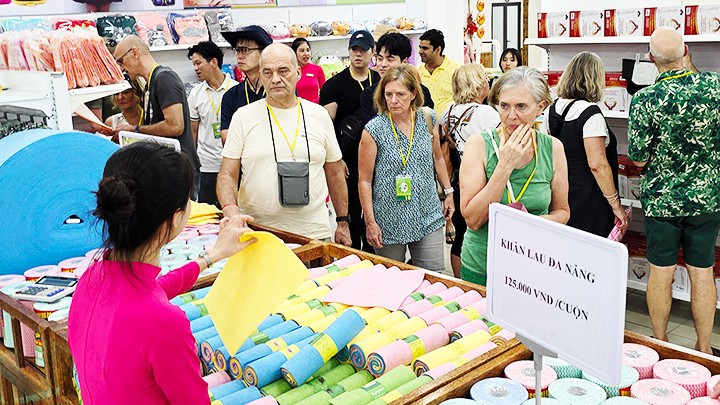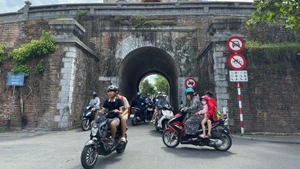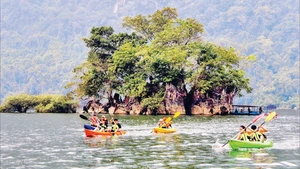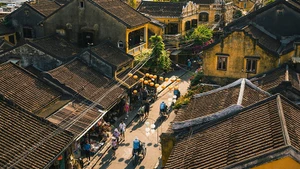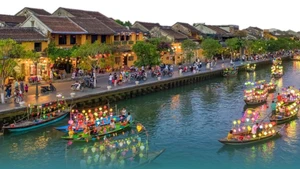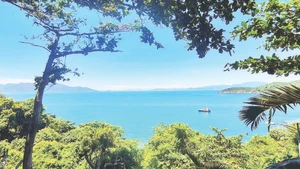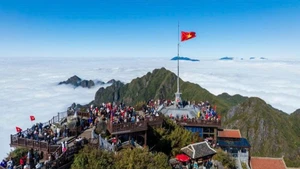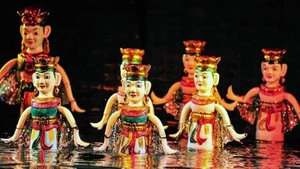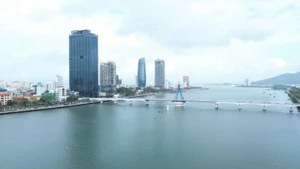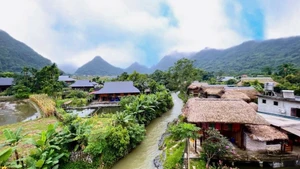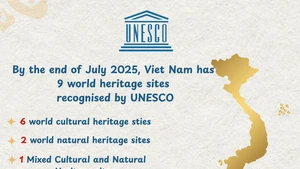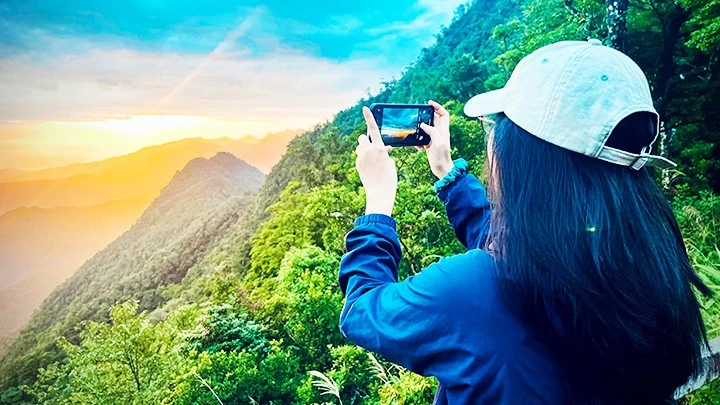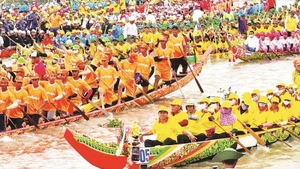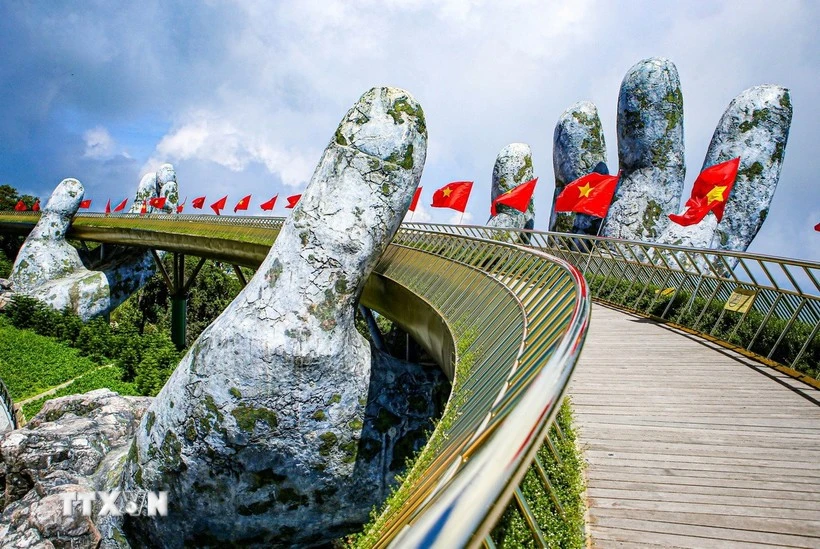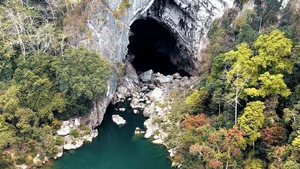Targeting the “ultra-wealthy” segment
Vietnam is becoming a magnet for many travellers seeking a luxurious experience, drawn to its unique natural beauty, rich cultural heritage, and growing investment in luxury services. The late January wedding of an Indian billionaire couple in Ha Long Bay (the northern province of Quang Ninh), attended by more than 500 guests, serves as a prime example. Groom Poojan Rajesh, while considering other glamorous locations, opted for Ha Long Bay due to its stunning scenery and professional, warm service. “Without a doubt, we and our beloved family and friends will cherish lasting memories here,” the billionaire remarked enthusiastically.
In 2024, another Indian couple celebrated a lavish wedding in Ha Long Bay, hosting more than 600 attendees. Thousands of employees of the Indian billionaire visited Vietnam, and they were effusive in their praise for the robust growth of the country’s tourism industry.
Da Nang became a sought-after destination when world-renowned billionaire Bill Gates chose it for his vacation. The billionaire and his girlfriend explored the Son Tra Peninsula, took in city views from the Ban Co Ong Tien, and enjoyed tennis at the resort. This visit further boosted Da Nang’s popularity, drawing a significant influx of domestic and international visitors. In April 2024, Apple’s iconic CEO, Tim Cook, savoured coffee in Hanoi’s Old Quarter, took a walk along Hoan Kiem Lake and visited a film studio during a brief working trip to the capital. Cook remarked, “There is no place like Vietnam - a vibrant and beautiful nation!”.
Following the visit of billionaire Bill Gates, the Da Nang Department of Tourism developed a tea-tasting tour at Ban Co on the Son Tra Peninsula, effectively leveraging existing potential to attract high-end clientele. In its international tourism promotion plan for 2025, Da Nang is paying closer attention to the Indian market in the high-quality segment, including MICE tourism, wedding tourism, and beach vacations.
In the first quarter of 2025, AAV expects to organise experiences for one group of ultra-rich clients per month to experience the new products. More than just an opportunity to increase revenue, this is also how Vietnam is positioning itself on the global luxury tourism map.
Quang Ninh is seeking out seven pristine islands and beaches to develop new tourism products catering to the ultra-wealthy – the top 1% of global citizens. All Asia Vacation (AAV), the company responsible for arranging Bill Gates’ visit in March, has also received approval from Quang Ninh to operate on private beaches within Ha Long Bay to develop tours for its billionaire clientele. Creating these special products allows the company to streamline administrative procedures and attract more customers easily. AAV anticipates facilitating these unique experiences for at least one ultra-rich client group each month during the first quarter of 2025. This strategy not only holds the potential for increased revenue but also helps Vietnam position itself on the global luxury tourism map.
Selective Visa Exemptions
“Without a rapid expansion of its visa exemption policy, Vietnam risks being left behind in the competition for regional tourism market share,” said Hoang Nhan Chinh, Head of the Secretariat of the Tourism Advisory Board of Vietnam. Vietnam often lags behind countries such as Thailand, Singapore, and Malaysia in the race to attract international tourists to Southeast Asia. Malaysia offers visa-free entry to 165 countries, Singapore to 163 countries, and Thailand to 98 countries, with a stay duration of 30-90 days. In contrast, Vietnam only offers visa exemptions to citizens of 30 countries, including 15 unilaterally exempt for 45 days.
If Vietnam can’t expand its visa exemption list in a “mass” approach like Thailand, it can expand its visa exemption policy for developed countries such as the US, Canada, and Australia. Alternatively, it can target high-value segments such as businesspeople and billionaires. Easing visa requirements would enable the tourism sector to compete directly with Singapore and Thailand in the high-end travel market. "Simplifying entry processes will not only attract a greater influx of tourists but also draw investors, entrepreneurs, and individuals seeking extended stays in Vietnam, boosting the economy and elevating the country’s standing,” Chinh stressed.
Vietnam lacks the infrastructure to accommodate the large number of tourists that Thailand attracts (35.5 million visitors in 2024). Therefore, instead of chasing quantity, it should focus on the high-end segment to reduce pressure on infrastructure. It should also take advantage of “ready-to-go” destinations like Phu Quoc, Ha Long, Da Nang, and Nha Trang. These destinations already have resorts and high-end tourism services that suit this group of travellers. “This is a smart, sustainable, and entirely feasible approach for Vietnam to compete with other countries in the region,” the expert analysed.
The Prime Minister has recently assigned the Ministry of Foreign Affairs, the Ministry of Public Security, and the Ministry of Culture, Sports, and Tourism to study appropriate visa policies, especially for traditionally friendly countries, and to diversify visa exemptions for some countries and target groups such as billionaires around the world. Visa exemptions for different groups will reduce administrative procedures, making it easier for them to visit Vietnam. This will provide more potential returning guests and enable foreign visitors to spend more so that the tourism industry will get more income overall.
Early in 2025, the Government issued a policy granting 45-day visa-free entry to citizens of Poland, the Czech Republic, and Switzerland (effective from March 1 to the end of 2025). Furthermore, in March, the Government also enacted Resolution No. 44, providing visa waivers for citizens of Germany, France, Italy, Spain, the United Kingdom and Northern Ireland, Russia, Japan, the Republic of Korea, Denmark, Sweden, Norway, and Finland, valid from March 15, 2025, to March 14, 2028, with consideration for extension following Vietnamese legal provisions.
